What is an AI Robot and How Does It Work?
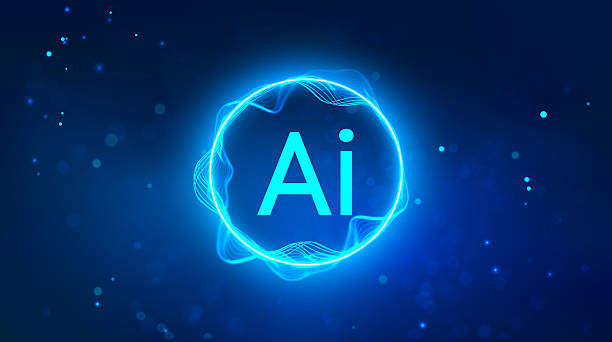
Today, the term AI robot is increasingly heard in various circles.
But what exactly is an AI robot and how does it work? In fact, an AI robot is a combination of two key concepts: #Artificial_Intelligence (AI) and robotics.
Artificial intelligence refers to the ability of a computer system to mimic human cognitive functions such as learning, reasoning, and problem-solving.
Robotics, on the other hand, deals with the design, construction, operation, and application of robots.
Therefore, an AI robot is a physical or software robot that uses artificial intelligence algorithms to perform tasks intelligently and autonomously.
These robots can learn from data, identify patterns, and make decisions that enable them to perform their tasks more effectively.
In other words, an AI robot tries to find the best solution for a specific problem by utilizing prior knowledge and experience.
An AI robot uses sensors to collect information from its environment.
This information is then processed by AI algorithms and used for decision-making and controlling the robot’s movements.
For example, an AI robot designed to clean a room can use cameras and other sensors to identify obstacles and determine the best path for movement.
Disappointed with your e-commerce website’s low conversion rate? RasawWeb transforms your online store into a powerful tool for attracting and converting customers!
✅ Significant increase in visitor-to-buyer conversion rate
✅ Exceptional user experience to boost customer satisfaction and loyalty⚡ Get a free consultation from RasawWeb!
Types of AI Robots and Their Applications
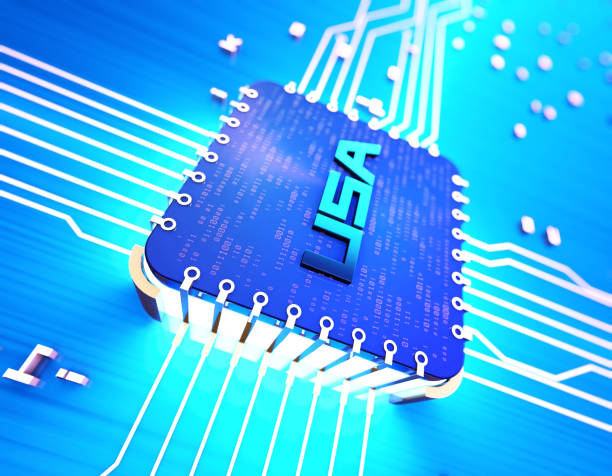
AI robots come in various shapes and sizes and are designed for a wide range of applications.
One common classification is based on their function.
For instance, industrial robots are typically used for repetitive and heavy tasks in factories.
These robots can operate with high precision and speed, helping to increase productivity.
Service robots are designed to provide services to humans.
These robots can be used in various fields such as elderly care, cleaning, and goods delivery.
Service robots can interact with humans and meet their needs using AI.
Furthermore, AI robots have numerous applications in medicine, agriculture, and education.
In medicine, robots can be used for complex surgeries, disease diagnosis, and patient care.
In agriculture, robots can be used for planting, harvesting, and spraying crops.
In education, robots can serve as private tutors or teaching assistants, helping students to learn better.
Overall, the applications of AI robots are vast and diverse, and they are expected to play an even more significant role in our lives in the future.
Main Components of an AI Robot
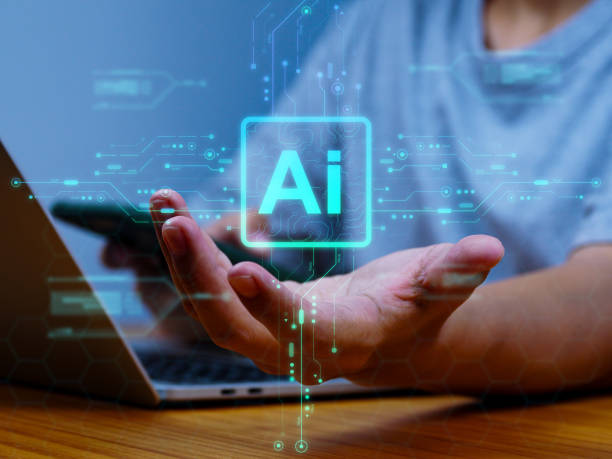
An AI robot is composed of various components, each playing a crucial role in its overall functionality.
Generally, the main components of an AI robot can be divided into three categories: hardware, software, and artificial intelligence algorithms.
Hardware includes the physical components of the robot such as the body, motors, sensors, and actuators.
The robot’s body provides a framework upon which other components are mounted.
Motors and actuators allow the robot to move and perform physical tasks.
Sensors are used to collect information from the robot’s surroundings.
Software consists of computer programs that control the robot’s behavior.
These programs can be written using various programming languages such as Python, C++, and Java.
Artificial intelligence algorithms are the beating heart of an AI robot.
These algorithms enable the robot to learn, reason, and make decisions.
There are different AI algorithms, each suitable for specific applications.
For example, machine learning algorithms are used to train robots from data.
Natural language processing algorithms are used to understand and generate human language.
And computer vision algorithms are used to identify and interpret images.
| Component | Description |
|---|---|
| Hardware | Includes body, motors, sensors, and actuators |
| Software | Computer programs controlling the robot |
| Artificial Intelligence Algorithms | Learning, reasoning, and decision-making algorithms |
Machine Learning and Its Role in the Development of AI Robots
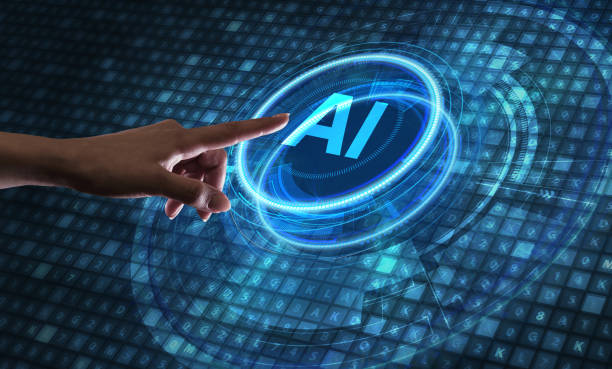
Machine Learning (ML) is a branch of artificial intelligence that allows computer systems to learn from data without explicit programming.
This technique plays a very important role in the development of AI robots.
By using machine learning, robots can acquire new abilities, improve their performance, and adapt independently to different conditions.
For example, an AI robot designed for autonomous driving can use machine learning to learn how to drive in various conditions from data collected by its sensors.
This data can include camera images, lidar data, and GPS data.
By analyzing this data, the robot can identify patterns and learn how to navigate traffic safely and effectively.
There are different types of machine learning algorithms, each suitable for specific applications.
Supervised learning, unsupervised learning, and reinforcement learning are among the most common types of machine learning algorithms.
The choice of the appropriate algorithm depends on the type of data and the task the robot needs to perform.
Overall, machine learning is a powerful tool that enables developers to create AI robots with more advanced capabilities and greater flexibility.
This leads to the creation of robots that are capable of performing more complex tasks and interacting more effectively with their environment.
Are you bothered by losing customers due to your e-commerce website’s outdated appearance or slow speed? RasawWeb’s expert team solves these problems with professional e-commerce website design!
✅ Increase customer trust and your brand’s credibility
✅ Stunning speed and excellent user experience
Get a free consultation with RasawWeb right now ⚡
Challenges and Limitations of AI Robots
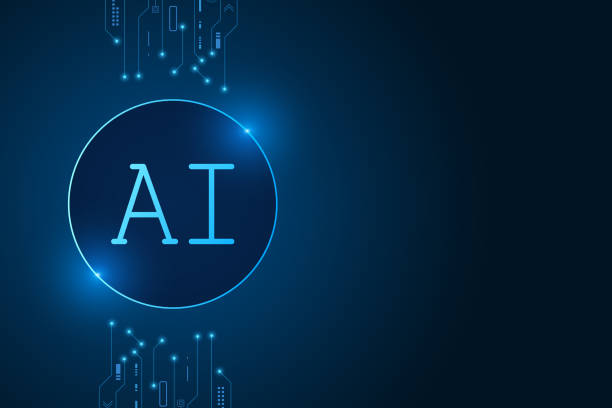
Despite significant advancements in the field of AI robots, this technology still faces numerous challenges and limitations.
One of the most important challenges is the need for abundant and high-quality training data.
Machine learning algorithms require large volumes of data for effective learning.
If the training data is incomplete or inaccurate, the robot’s performance can be severely affected.
Another challenge is the problem of generalizability.
Robots trained in a specific environment may not perform well in other environments.
This is because machine learning algorithms are usually optimized for specific conditions and cannot easily adapt to new ones.
Furthermore, AI robots still face limitations in understanding and interpreting human language and performing complex and unpredictable tasks.
For example, robots may struggle with understanding abstract concepts or recognizing human emotions.
Ethically, the use of AI robots also raises questions about accountability, privacy, and security.
For instance, if an autonomous robot causes an accident, who will be responsible? How can the misuse of AI robots be prevented? Answering these questions requires careful consideration and the formulation of appropriate laws and regulations.
The Future of AI Robots and Their Impact on Human Life
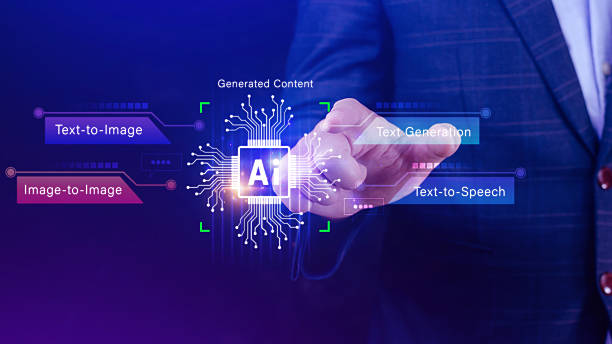
The future of AI robots is very bright and full of potential.
With continuous advancements in artificial intelligence and robotics, robots are expected to play a more significant role in our lives in the future.
They can assist humans in various fields such as healthcare, education, transportation, manufacturing, and services.
For instance, surgical robots can perform complex surgeries with greater precision and delicacy.
Educational robots can help students learn better.
Autonomous robots can reduce traffic and increase road safety.
Household robots can assist with daily chores and make life easier.
However, the widespread use of AI robots can also bring challenges.
One of the most significant challenges is its impact on the job market.
With the automation of many tasks, many jobs may disappear.
Therefore, it is necessary to prepare for these changes and develop programs for workforce training and retraining.
Additionally, it is crucial to seriously examine the ethical and social issues related to AI robots and formulate regulations to govern the use of this technology.
AI Robots in Iran: Prospects and Opportunities
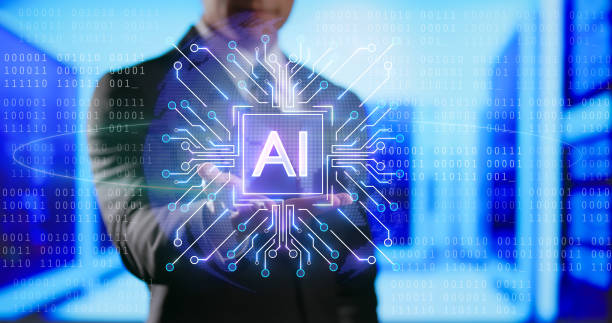
In Iran, the development of AI robots has also been considered a priority.
Numerous universities and research centers are active in this field, striving to design and produce robots for various applications.
Sectors such as industry, agriculture, and healthcare are among the areas where AI robots can play a significant role in their development.
For example, in industry, robots can be used for repetitive and dangerous tasks.
In agriculture, robots can be used for planting, harvesting, and spraying crops.
In healthcare, robots can be used for complex surgeries, disease diagnosis, and patient care.
However, the development of AI robots in Iran also faces challenges.
Lack of investment, shortage of skilled workforce, and inadequate infrastructure are among these challenges.
To address these challenges, it is necessary for the government and the private sector to collaborate, make the necessary investments, train specialized personnel, and provide suitable infrastructure.
| Sector | Opportunities |
|---|---|
| Industry | Automation of repetitive and dangerous tasks |
| Agriculture | Optimization of planting, cultivation, and harvesting |
| Healthcare | More precise surgery, faster diagnosis |
Ethical Considerations in the Design and Use of AI Robots

The design and use of AI robots come with important ethical considerations that must be addressed.
One of the most important of these considerations is accountability.
If an autonomous robot causes an accident, who will be responsible? The manufacturing company, the robot’s owner, or the robot itself? The answer to this question requires a precise determination of the responsibilities of each of these individuals and entities.
Another ethical consideration is privacy.
Robots that use sensors to collect information from their surroundings can gather sensitive data about individuals.
How can the misuse of this information be prevented? It is necessary to formulate laws and regulations to protect individuals’ privacy from AI robots.
Furthermore, it is essential to consider human values in the design of AI robots.
Robots should not be designed in a way that is discriminatory or harms human rights.
For example, robots used for hiring individuals should not discriminate based on gender, race, or religion.
Overall, it is necessary to adhere to ethical principles in the design and use of AI robots and strive to use this technology in a way that benefits everyone.
Are you worried about your e-commerce website’s low conversion rate and not achieving your desired sales?
RasawWeb is your specialized solution for a successful e-commerce website.
✅ Significant increase in conversion rate and sales
✅ Professional and user-friendly design to attract customer satisfaction
⚡ Ready for a transformation in online sales? Get a free consultation!
Skills Required to Enter the World of AI Robots
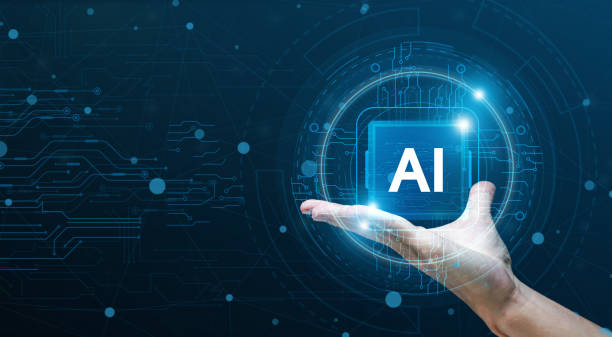
Entering the world of AI robots requires acquiring various skills.
One of the most important of these skills is programming knowledge.
Programming languages such as Python, C++, and Java are widely used in the development of AI robots.
Additionally, knowledge of mathematics and statistics is essential for understanding and utilizing artificial intelligence algorithms.
Familiarity with concepts like linear algebra, calculus, and probability and statistics will help you better understand AI algorithms and implement them more effectively in your projects.
Problem-solving and critical thinking skills are also very important for developing AI robots.
You should be able to analyze complex problems, offer creative solutions, and critically evaluate the results of your work.
Furthermore, familiarity with the principles of robotics and electronics can help you better understand how robots work.
You need to know how sensors and actuators function and how they can be effectively used in robot design.
Overall, entering the world of AI robots requires significant effort and perseverance.
But by acquiring the necessary skills and continuous practice, you can succeed in this field.
Educational Resources for Learning AI Robots

Fortunately, abundant educational resources are available for learning about AI robots.
Numerous universities and educational institutions worldwide offer courses related to artificial intelligence and robotics.
These courses can help you acquire the necessary knowledge and skills to enter this field.
Additionally, online educational resources are also available.
Various websites and educational platforms such as Coursera, Udemy, and edX offer courses related to artificial intelligence and robotics.
These courses can help you learn at your preferred time and place.
In addition to educational courses, books and scientific articles are also valuable resources for learning about AI robots.
Many books have been published in the field of artificial intelligence and robotics that can help you understand basic and advanced concepts.
Scientific articles can also help you stay informed about the latest advancements in this field.
Furthermore, practical projects can also assist you in learning about AI robots.
By undertaking practical projects, you can apply your knowledge and skills in practice and gain experience.
You can undertake simple projects using robotic kits or robot simulators.
As you progress in learning, you can undertake more complex projects and design and implement your own AI robots.
Frequently Asked Questions
| Question | Answer |
|---|---|
| What is an AI robot? | An AI robot is a machine capable of perceiving its environment, reasoning, learning, and making decisions to perform tasks autonomously. |
| What is the difference between regular robots and AI robots? | Regular robots perform repetitive tasks based on prior programming, whereas AI robots can learn from experience, interact dynamically with their environment, and even behave in ways that resemble human intelligence. |
| What are the main applications of AI robots? | They are used in industries (manufacturing, assembly), medicine (surgery, diagnosis), services (customer support, household), exploration (space, underwater), and many other fields. |
| What technologies are used in the construction of AI robots? | Machine Learning, Computer Vision, Natural Language Processing, Deep Learning, and Robotics are among the key technologies. |
| Can AI robots have emotions? | Currently, robots do not have emotions in the human sense. They can identify and react to emotions, but they do not experience emotions themselves. |
| What are the main challenges in the development of AI robots? | Safety, reliability, ethics, autonomy, adaptability to complex environments, and natural human interaction are important challenges. |
| How are AI robots trained? | They are typically trained using large amounts of data, machine learning algorithms, and deep learning to identify patterns and make decisions. |
| Examples of AI robots in daily life? | Smart robotic vacuum cleaners, customer support chatbots, self-driving cars, and surgical robots in hospitals. |
| Are AI robots a threat to human jobs? | Some repetitive jobs may be automated, but at the same time, robots can increase productivity and create new jobs in the development, maintenance, and supervision of these systems. |
| How is the future of AI robots predicted? | They are expected to become smarter, more autonomous, and capable of performing more complex tasks, engaging in closer interaction with humans in various environments. |
And other advertising agency services by RasawWeb in the field of advertising
- Smart Brand Identity: Professional optimization to improve SEO ranking using real data.
- Smart Conversion Rate Optimization: A dedicated service for online growth based on real data usage.
- Smart Advertorials (Rapportage): A dedicated service for increasing website visits based on custom programming.
- Smart SEO: An effective tool for increasing sales by utilizing real data.
- Smart Website Development: An innovative service for enhancing campaign management through key page optimization.
And over hundreds of other services in the field of internet advertising, advertising consulting, and organizational solutions
Internet Advertising | Advertising Strategy | Advertorials
Sources
Comprehensive Guide to AI Robots
Applications of Artificial Intelligence in Robotics
Artificial Intelligence and Robots: A Practical Guide
How Smart Robots Are Changing Our Lives
? Are you ready to revolutionize your business in the digital world? RasawWeb Afarin Digital Marketing Agency, specializing in custom website design, SEO, and digital marketing strategies, paves your path to success. Contact us today and build your digital future.
📍 Tehran, Mirdamad Street, next to Bank Markazi, Kazeroon Jonubi Alley, Ramin Alley, No. 6


